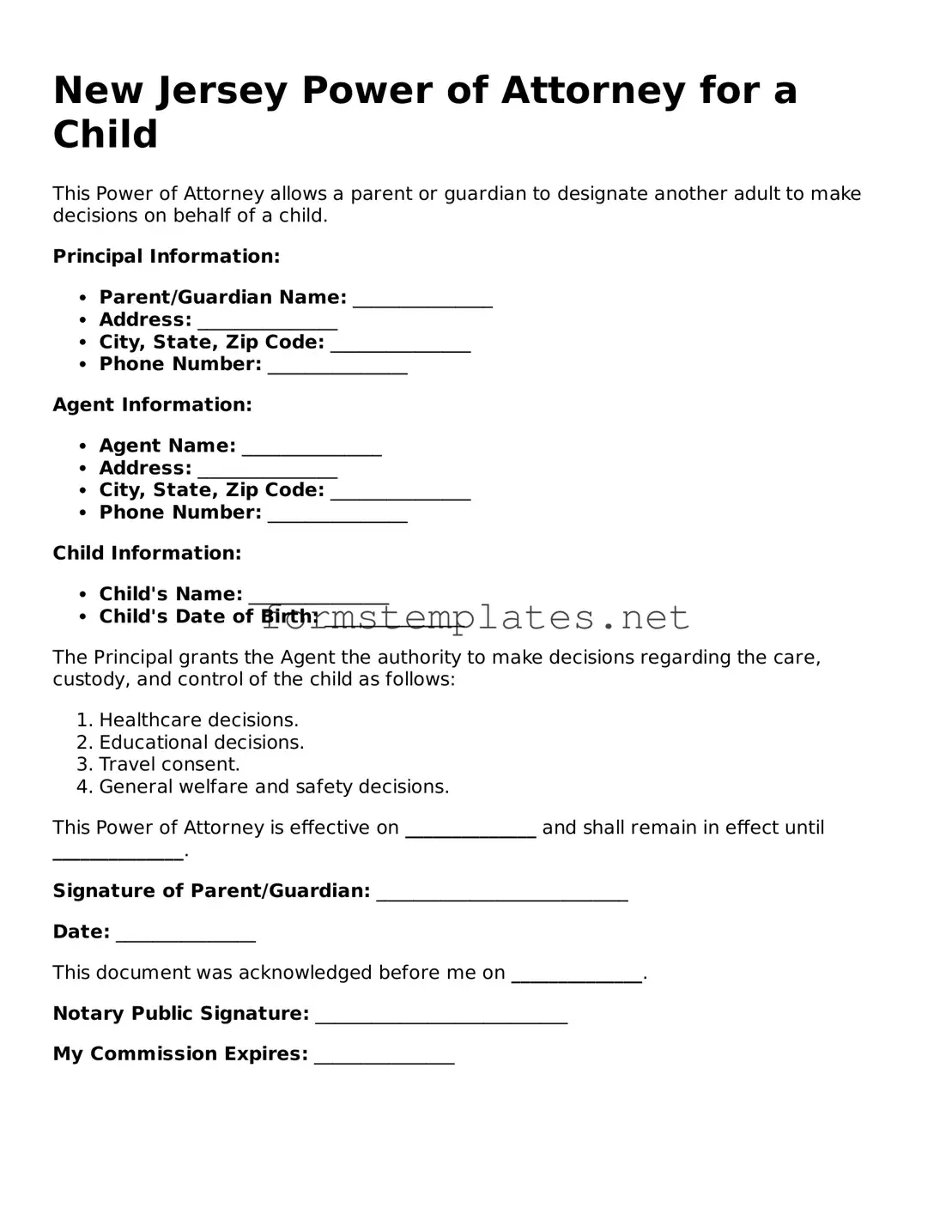Attorney-Approved New Jersey Power of Attorney for a Child Template
The New Jersey Power of Attorney for a Child form allows a parent or guardian to designate another adult to make decisions on behalf of their child. This legal document ensures that a trusted individual can act in the child's best interest when the parent is unavailable. Understanding this form is crucial for parents who want to ensure their child's well-being in various situations.
Open Editor Now

Attorney-Approved New Jersey Power of Attorney for a Child Template
Open Editor Now

Open Editor Now
or
⇓ PDF Form
Your form still needs attention
Finalize Power of Attorney for a Child online — simple edits, saving, and download.